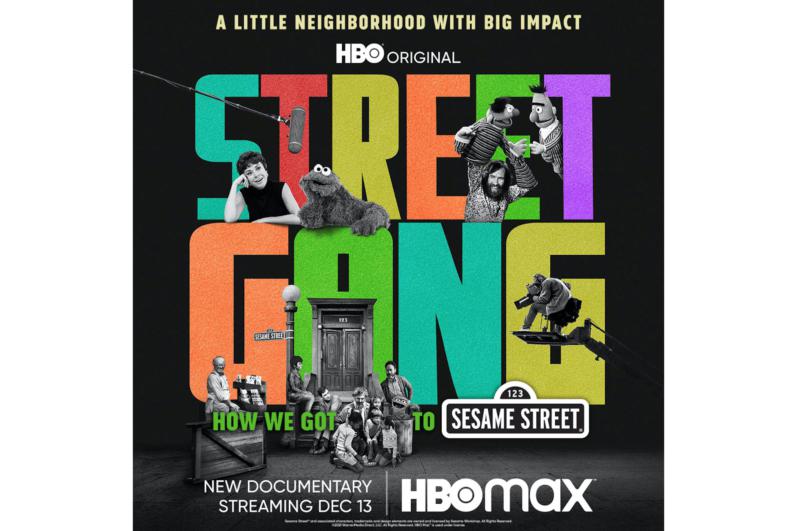'Street Gang,' Dec. 13, HBO
NEW YORK (CNS) -- More than 50 years after its premiere, the children's TV show whose roots are retraced in the documentary "Street Gang: How We Got to Sesame Street" has ranked as an American fixture for so long that it's difficult to recall a time when it didn't enjoy that status.
So it's no surprise that the retrospective also emphasizes the program's enduring appeal.
The fascinating, if somewhat tendentious, film debuts on HBO Monday, Dec. 13, 10 p.m.-midnight EST. It's based on Michael Davis' eponymous 2009 book -- subtitled "The Complete History of Sesame Street" -- and will stream on HBO Max as well.
Perhaps best known as the director of the Christopher Award-winning "Mad Hot Ballroom" (2005), which followed an ensemble of New York City public school students as they discovered the titular style of dance, Marilyn Agrelo fulfills the same role behind the scenes here. Author Davis served as one of the movie's executive producers.
The narrative focuses on a number of people the documentarians regard as crucial to the development of "Sesame Street." They include series creators Joan Ganz Cooney and Lloyd Morrisett as well as longtime writer, director and producer Jon Stone.
Together, Cooney, a former publicist, and Morrisett, an executive with the Carnegie Foundation, founded the Children's Television Workshop, currently known as Sesame Workshop. The genesis of their flagship show came about through a now-famous conversation between the two.
At a 1966 dinner party Cooney hosted at her Manhattan apartment, Morrisett posed a question to her. "Do you think," he asked, "television can be used to teach young children?"
For his part, Stone believed that the right formula for the pioneering series would combine what kids liked with what was good for them. Launched Nov. 10, 1969, with an $8 million grant from U.S. Department of Education, "Sesame Street" also aimed to close the gaps in learning among impoverished youngsters in the inner city.
Accordingly, those behind the show wanted it to reflect the life experience of such kids. As Stone says, for them, "the action is on the street."
Early episodes segregated scenes involving human characters from segments featuring master puppeteer Jim Henson's Muppets. But, as Henson's daughter Lisa, the CEO of his namesake company, observes, the former were "boring by comparison" to the latter. Combining the two elements proved vital to the program's abiding popularity.
The filmmakers highlight the inspiration the creators of "Sesame Street" drew from the social movements of the 1960s. The program's integrated cast, for example, met with initial resistance from the management of Mississippi Public Television.
Although it's not mentioned in "Street Gang," Catholic fans of Cooney's work may be interested to know that part of the stimulus for it was indirectly religious rather than political and came from one of their own.
Cooney has stated that her original decision to get involved with the media came as a result of her exposure to the ideas of Maryknoll Father James Keller (1900-1977), the founder of the Christophers. Through his writings and broadcasts, Father Keller encouraged idealists such as Cooney to enter important fields of endeavor and bring a positive influence to bear on them.
"Street Gang" works best when it profiles the numerous "Sesame Street" characters that have endeared themselves to generations of children. A celebrated episode involving Big Bird -- long performed by Caroll Spinney -- shows why.
When actor Will Lee, who played neighborhood variety store owner Mr. Hooper, died in1982, the writers incorporated his character's death into the show. Poignantly, Spinney's childlike, sweetly innocent yellow giant struggles to comprehend the loss of his friend.
Ironically, this tribute to one of the world's most successful programs for children is itself unsuitable for youngsters for a variety of reasons. Besides discussions of poverty, racism, clinical depression and war, the dialogue also includes occasional instances of vulgar language. Despite this, the movie is probably acceptable for older teens.
Mature viewers will find this origins story of a national institution entertaining as well as informative. They may also come away from it agreeing with the verdict of fabled actor and director Orson Welles. During an appearance on "The Dick Cavett Show," Welles dubbed "Sesame Street" the "greatest thing that ever happened on television."
- - -
Byrd is a guest reviewer for Catholic News Service.



















